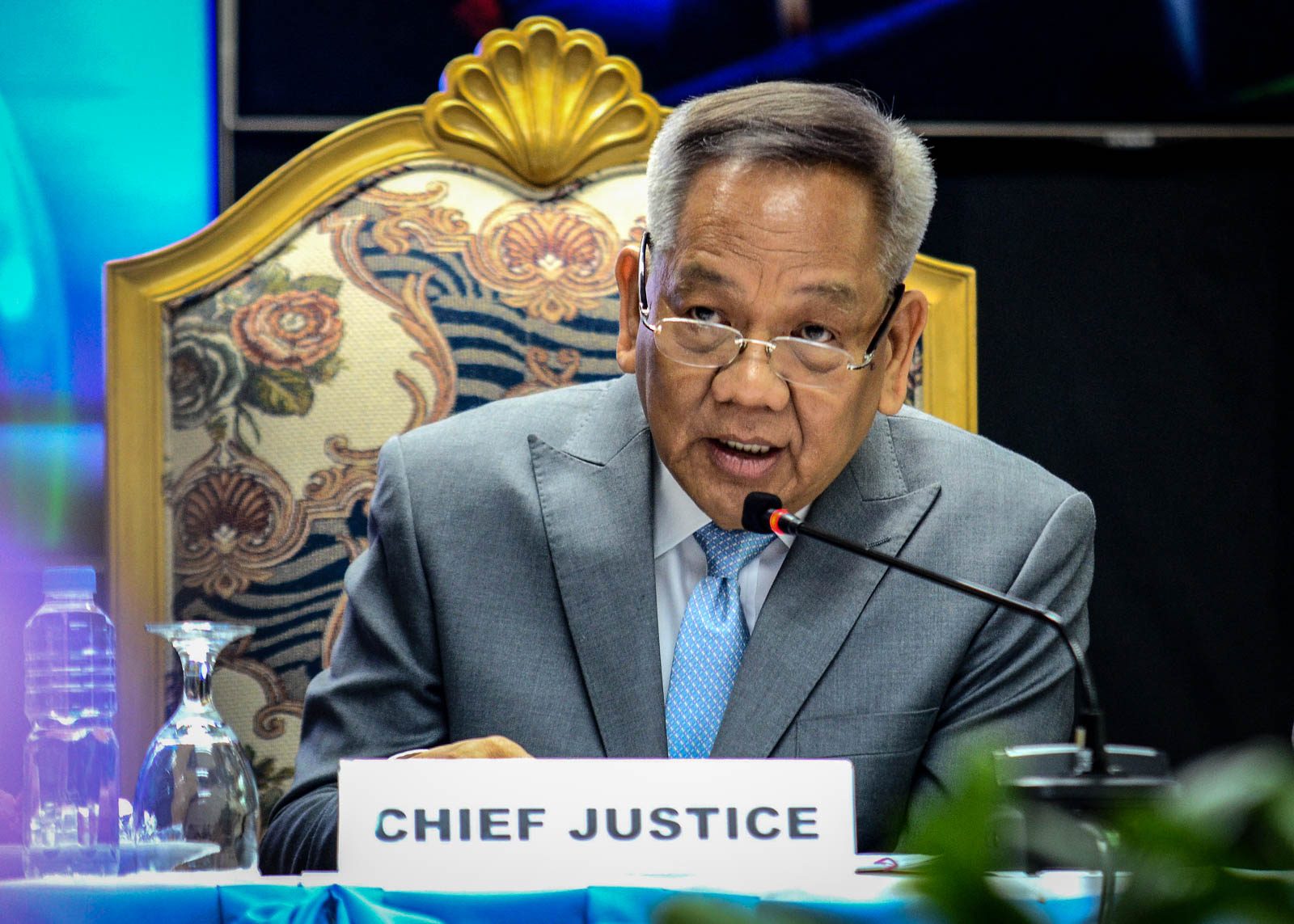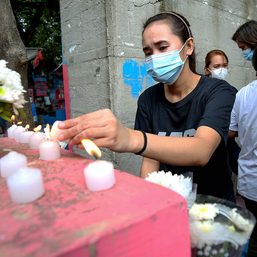SUMMARY
This is AI generated summarization, which may have errors. For context, always refer to the full article.

Chief Justice Diosdado Peralta said it may be time to revise the law that imposes a maximum 36-hour limit to charge a person arrested without a warrant, saying the growing population and addition of crimes have made the 1932 law outdated.
Peralta said this during his interpellation on Day 3 of the anti-terror law oral arguments at the Supreme Court on Tuesday, February 16.
This refers to Article 125 of the Revised Penal Code which says a person arrested without warrant should be charged in court within 12, 18 or 36 hours – depending on the offense – or otherwise be released. Law enforcers who lapse the deadline can be liable for arbitrary detention.
“I think that 125 should already be amended because that has never been amended since 1932, and you can just imagine a person arrested without a warrant – [for example] murder – what are the requirements that should be filed? Autopsy, witnesses account… How can they file the case within 36 hours?” said Peralta.
“This law was introduced in 1932, 36 hours, probably the population was less than 1 million during that time. But because of development of our laws, there are so many crimes now, dangerous drugs law, qualified trafficking, syndicated estafa,” said Peralta in a mix of English and Filipino.
This was Peralta’s line of questioning because Article 125 is often used by petitioners to boost their case that the anti-terror law is unconstitutional. How can the law authorize a maximum of 24 days in detention when Article 125 imposes a 36 hour timeframe?
In the Constitution, under the gravest situation of a martial law, the 36-hour timeframe is extended but only up to 3 days.
Opposition lawmaker Edcel Lagman told Peralta: “Protection of fundamental rights should not be capsulized in the timeframe. Such guarantees are immutable and it should be respected under all regimes and under all eras.”
Peralta pressed: Do you think 14 days is too long? (The chief justice said 14 days because the law says 14 days extendible by another 10 days, or up to 24)
Lagman answered him: “14 days which is extendible to 24 days I submit would be inordinately long.”
Lagman said the solution is not to extend the period, but for law enforcement to improve their skills and capacities.
“There are many police officers, countless of them so that Congress has to appropriate billions of pesos to support the PNP (Philippine National Police). So I would submit that Article 125 is still a good law,” said Lagman.
“What should be important is not the prolongation of detention but the efficiency of police and military operatives and also that intelligence should be professional and accurate,” Lagman said.
Day 4 of oral arguments will be on February 23.
Here are other stories from Day 3:
- Justice Caguioa questions broad powers of anti-terror council
- Parlade, Cebu raid get SC to redeliberate anti-terror law TRO
– Rappler.com
Add a comment
How does this make you feel?





There are no comments yet. Add your comment to start the conversation.